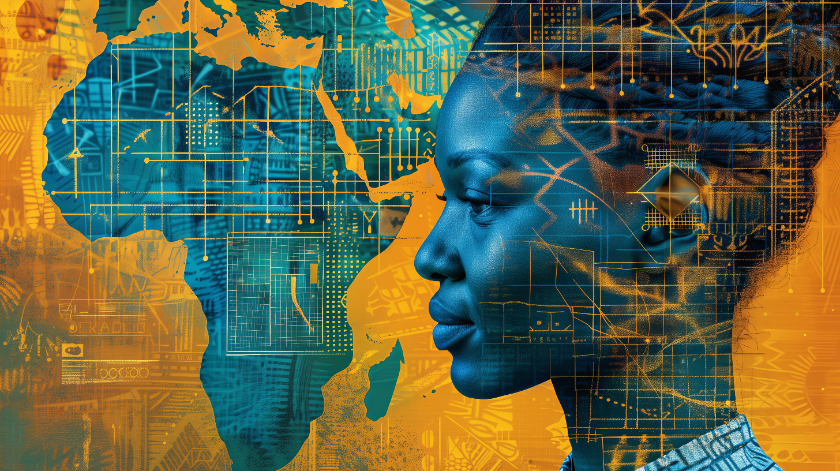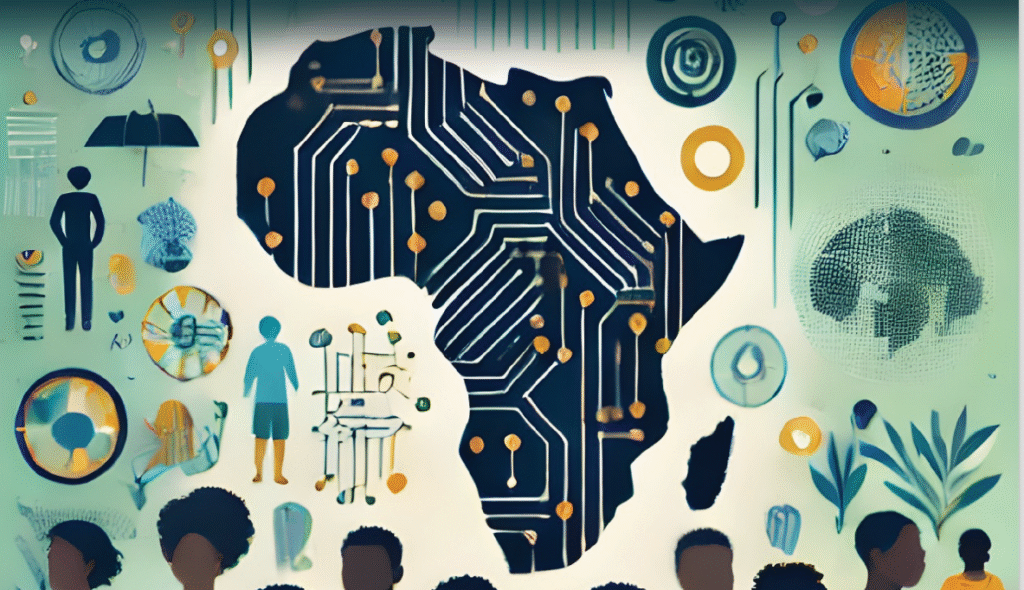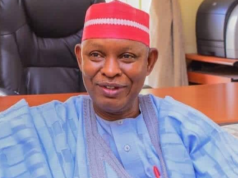The world is currently experiencing a rush for artificial intelligence (AI) investment, but Africa’s share remains worryingly small. In Q2 2025, global AI startups attracted a massive US$47.3 billion in fresh capital. Yet, African AI firms managed to secure only US$14 million across five deals—just 0.02% of the global total.
This stark reality places Africa at the bottom of the table in the global AI race. It also raises a pressing question: how can the continent’s innovators compete in a funding environment where the gap is so vast?
Billions Flow Elsewhere, Africa Barely Notices a Ripple
When the Q2 2025 numbers are broken down, the imbalance becomes painfully clear. The United States received the overwhelming bulk, raking in US$39.7 billion from 728 deals—an astonishing 83.9% of the total AI funding for the quarter. Europe followed distantly with US$4.4 billion (307 deals, 9.3%). Asia secured US$2.1 billion (4.4%), Canada came in at US$700 million (1.47%), Oceania managed US$300 million (0.6%), and Latin America got US$50 million (0.1%).
By contrast, Africa’s US$14 million is almost a statistical rounding error. For perspective, the top AI funding deal of the quarter—Meta’s US$14.8 billion minority stake in Scale—was more than a thousand times the total capital secured by every African AI startup combined.
Table of Contents

The Bigger Picture: A Global Surge Meets Local Struggles
While Africa struggles to attract substantial AI funding, globally, the sector is in a boom cycle. The US$47.3 billion raised in Q2 made it the second-highest quarter ever for AI investments, despite being 31.3% down from Q1’s record-setting US$68.9 billion. The average deal size has grown sharply, with 2025’s year-to-date median sitting at US$4.6 million—the highest in four years.
So far in 2025, total AI funding has already hit US$116.1 billion, surpassing all of 2024’s US$105.7 billion and nearly doubling the combined totals for 2022 and 2023. The appetite for AI innovation is clearly there, but most of that appetite is being satisfied in markets with established infrastructure, investor familiarity, and track records of delivering high returns.
For African innovators, the problem isn’t a lack of talent or ideas—it’s the ability to convince global and local investors to bet big on their solutions. The funding that does reach African startups is often too small to meaningfully scale projects to global standards.

Why Africa’s AI Funding Lags—and What Could Change It
Several interlinked challenges explain why Africa finds itself in this position:
- Limited funding pipelines – Early-stage capital is scarce, and later-stage investors often overlook African ventures, fearing higher risk. The US$14 million raised in Q2 is far from enough to take promising ideas from concept to market dominance.
- Infrastructure gaps – Many African nations lack the cloud computing resources, advanced data centres, and reliable connectivity needed to train and deploy AI at scale. This deters serious investors.
- Skills and talent bottlenecks – While there are pockets of brilliance, the continent still needs more AI engineers, researchers, and product managers to meet the scale of global demand.
- Regulatory uncertainty – Inconsistent or unclear AI policies make long-term investments less appealing to foreign capital.
- Global investor bias – Venture capital often flows along familiar paths. The big cheques go where big exits have already happened—places like Silicon Valley, London, or Shenzhen—not to relatively untested AI markets.
Yet, there are bright spots. Across the continent, startups are building AI solutions for uniquely African challenges: diagnosing diseases in rural clinics without specialist doctors, using AI-powered analytics to boost crop yields for smallholder farmers, or improving fraud detection in mobile banking. These are not only commercially viable—they’re socially transformative.
If governments, development agencies, and the private sector can align to address infrastructure and policy issues, and if local investors step up, Africa could start attracting significantly more funding in the next five years.

Conclusion
The fact that Africa received just 0.02% of global AI funding in Q2 2025 is a wake-up call. While the world is pouring billions into AI, the continent’s innovators are working with mere crumbs. This is not due to a lack of creativity or capability but rather a structural investment gap that keeps the African AI sector from flourishing at its true potential.
Bridging this gap will require targeted policies, strategic partnerships, and a deliberate push to make Africa a serious player in the global AI funding race. Because as the technology reshapes industries worldwide, those left out of the funding flow risk being left behind altogether.
The next chapter of Africa’s AI story doesn’t have to be defined by underinvestment. With the right interventions, the innovators building today could be leading tomorrow—if only the funding finds them in time.
Join Our Social Media Channels:
WhatsApp: NaijaEyes
Facebook: NaijaEyes
Twitter: NaijaEyes
Instagram: NaijaEyes
TikTok: NaijaEyes




